Sleep expert reveals how to cope with the clocks going forward
Start preparing tonight so you don't feel like a zombie on Monday morning
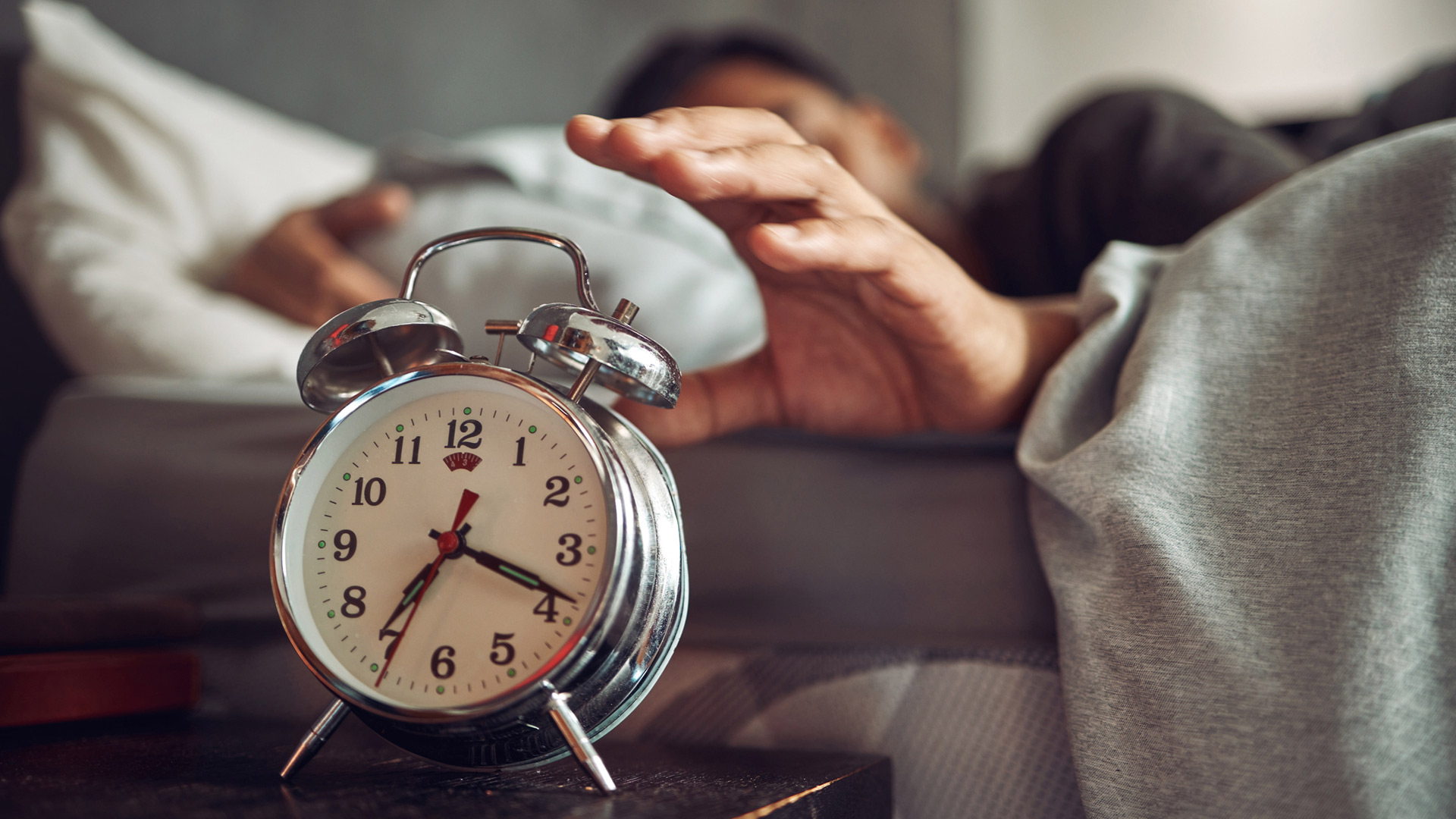
Sign up for breaking news, reviews, opinion, top tech deals, and more.
You are now subscribed
Your newsletter sign-up was successful
Daylight savings time or summer time kicks off over most of Europe on Sunday 26 March, and while the lighter evenings are a definite cause for celebration, there's a flipside: losing a whole hour's sleep.
It's a hell of a shock to the system and can completely ruin your day, at least until your body clock adjusts to the change. But if you don't allow yourself to be caught out by the clocks going forward, and instead give yourself a few days in advance to adjust, you can make the whole process a lot less painful.
Dr Lindsay Browning, psychologist, neuroscientist and sleep expert for And So To Bed, suggests gradually altering your bedtime two to three days before the clocks go forward so that you can get used to falling asleep and waking up earlier; that means ideally starting tonight!
"Try going to bed 15 minutes earlier and waking 15 minutes earlier the first night," she advises, "then 30 minutes earlier than your usual bed and wake time the second night, then 45 minutes earlier the third night." That brings us to Saturday night when the clocks go forward, and so on Sunday night you should be able to go to bed at what the clocks say is your normal bedtime and wake up the next morning all adjusted.
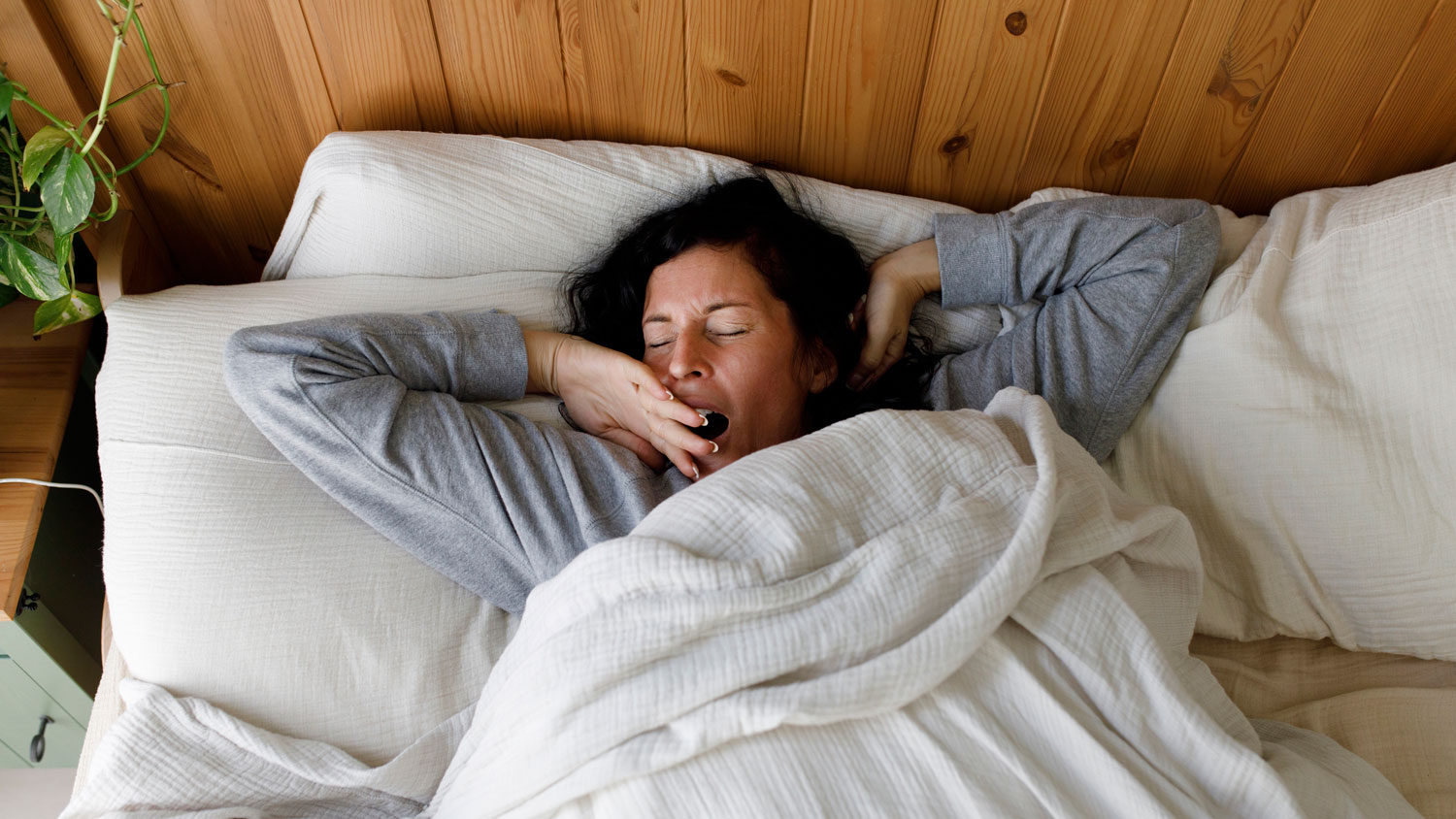
There's a bit more to it than simply shifting your bedtime gradually, though. "It is also a good idea to move your breakfast, lunch and dinner times a little earlier each day too," says Lindsay, "since the timing of mealtimes also has an impact on our internal clock."
You should also try to avoid bright light from your phone and laptop in the evening, as this can disrupt you natural production of melatonin. And, says Lindsay, to help adjust your circadian rhythms it's a good idea to get some light exposure as early in the morning as possible.
Start your day by opening your curtains wide as soon as you wake up to let in the light," she says, "and ideally go for a walk first thing early in the morning to help your body get used to waking up and going to bed earlier. Since morning exercise has been shown to help our circadian rhythm move, you could do some exercise in the morning to help you wake up more easily at this earlier time, and try to avoid it in the evening."
Sign up for breaking news, reviews, opinion, top tech deals, and more.
All this should be enough to make the shift to summer time a lot less traumatic, and don't forget that having the best mattress and a set of the best pillows can help ensure the most comfortable night so you'll get all the sleep you need; however Lindsay has a few more sleep hygiene tips that can make your life easier when your sleep cycle's about to be disrupted:
1. Have a regular bedtime and wake time
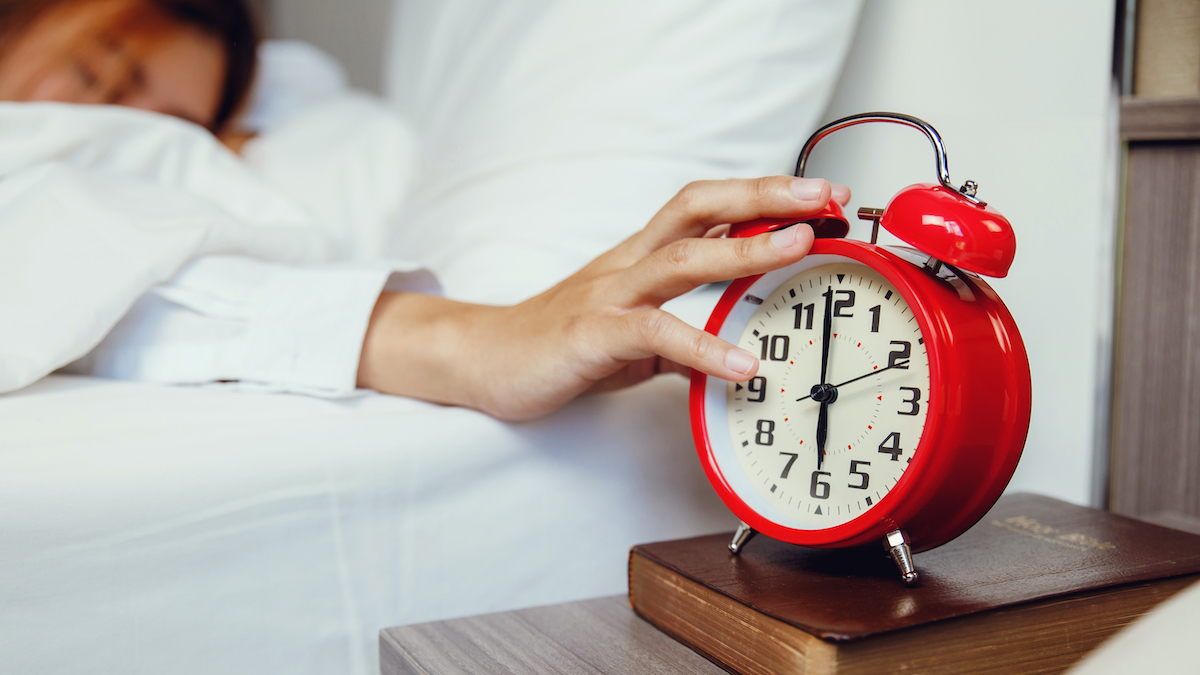
"Keeping a regular wake and bedtime seven days per week will help you sleep better," says Lindsay. "When you keep a regular sleep schedule your body develops a robust circadian rhythm which helps you to sleep at the right time at night. If you go to bed early and wake up early on weekdays, but stay up late and have a lie-in on the weekend, you are giving yourself weekend "jet lag" – making it much harder to go to sleep early on a Sunday night ready for another early start on Monday morning!"
There's a name for this phenomenon: social jet lag. It refers to when your body clock and sleep patterns are misaligned, causing that groggy feeling we associate with actual jet lag. Consistency in your sleep schedule is the best way to beat it.
Ahead of the daylight saving change, try shifting your bedtime earlier while maintaining your regular wake-up time. This accumulation of extra rest is known as sleep banking, and by building up a reserve of sleep, you can prepare your body for that lost hour.
2. Increase your exercise levels
Lindsay explains that as well as being essential for overall health, exercise directly impacts your need for "deep sleep" at night. "Moderate exercise like a brisk walk has been shown to increase your deep sleep during the night," she tells us, "which helps you to wake up the next day feeling more refreshed.
"The more you exercise, the more deep sleep you will have and it is deep sleep that helps you to feel refreshed when you wake up, and helps with sleep continuity.
"Make sure that you exercise during the daytime and not too close to bedtime, as exercise in the evening can sometimes be disruptive to sleep, due to the release of endorphins and adrenaline."
3. Stop your caffeine intake 5-7 hours before bed
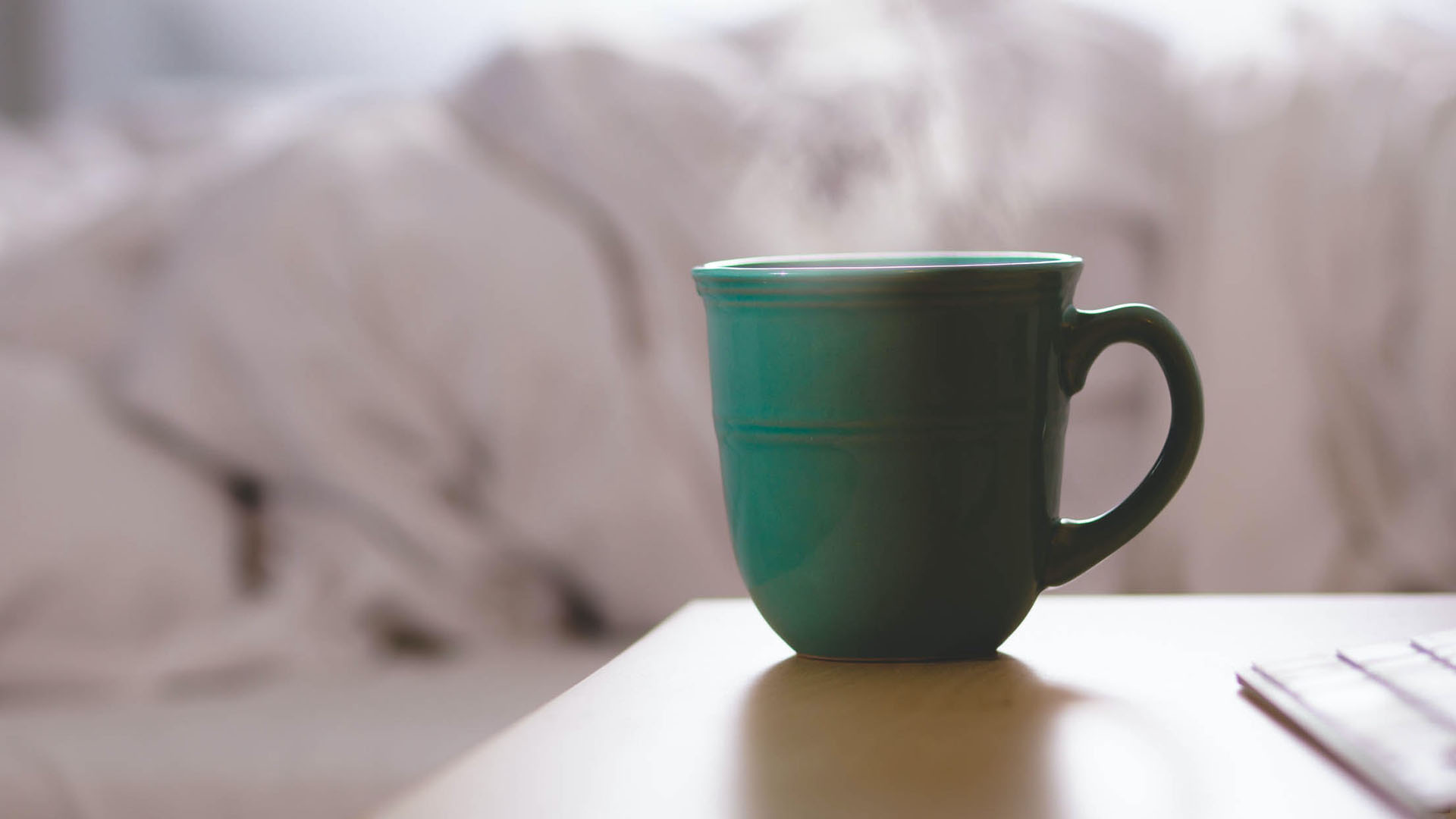
Go easy on the coffee, warns Lindsay. "Caffeine has an average half life of 5-7 hours. That means that 5-7 hours after your cup of coffee, half of the caffeine is still in your system!
"Caffeine is not only found in tea and coffee, but also in chocolate and in soft drinks such as cola and energy drinks, including the sugar-free variety. If you have trouble sleeping then it is recommended for you to have your last cup of caffeine of the day at around 2pm."
4. Night time digital detox
A recent study found that 1 in 5 are kept awake by their phones, and it's not just about doomscrolling into the early hours; your phone itself can be triggering your brain into wakefulness, so Lindsay advises turning it and other electronic devices off an hour before bed.
"Smartphones emit blue light which is the same as daylight," she explains. "This tricks the brain into thinking it is day time which can make it difficult to transition into sleep mode when bedtime rolls around. Try reading a book or meditating before you sleep instead."
5. Have a warm bath before bed
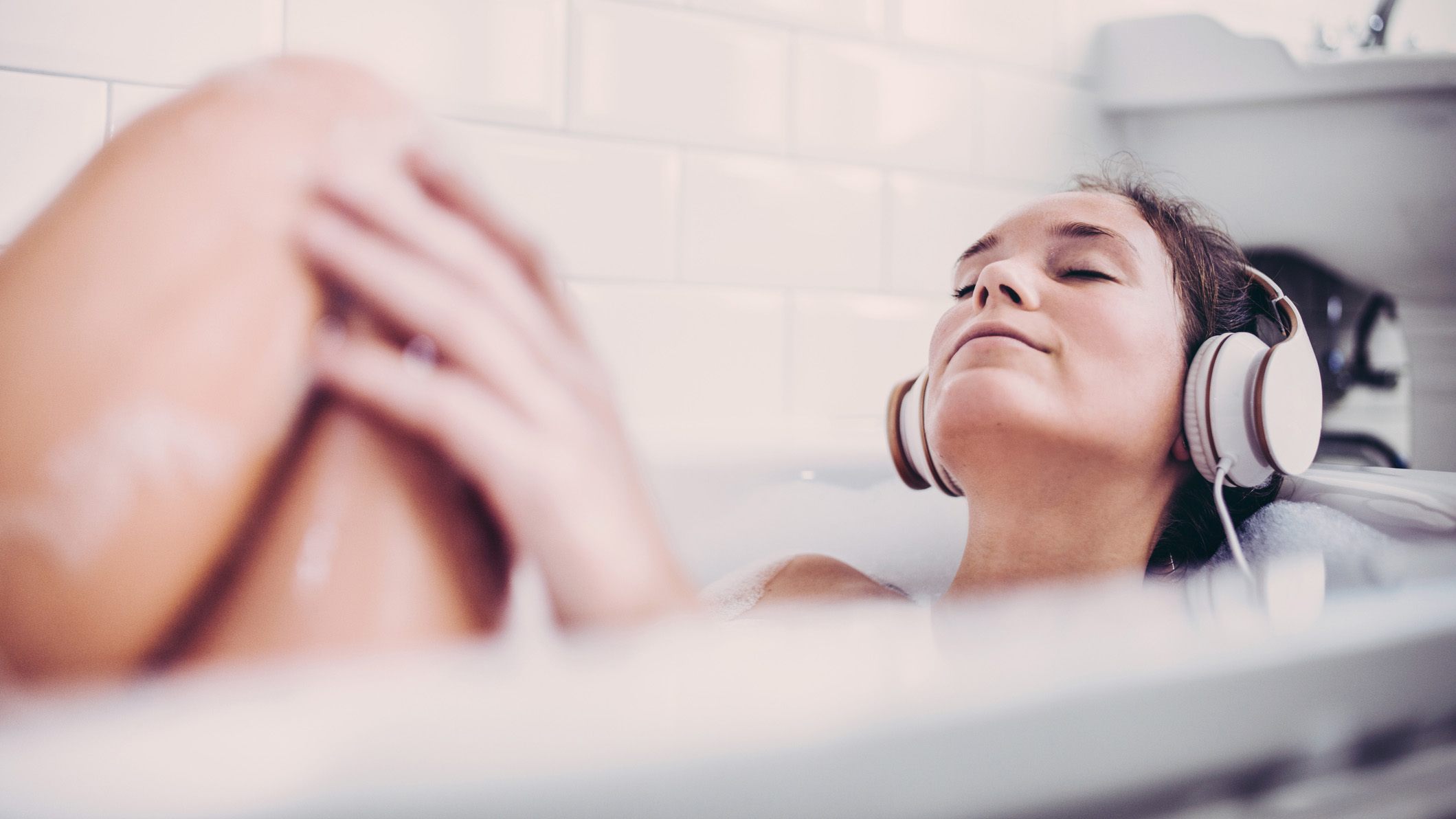
There's nothing like relaxing warm bath before bed; not only will it help you to wind down after a busy day, but also the temperature of the bath will help you sleep. Lindsay explains how it works: "When you go to sleep, your body temperature naturally decreases, which is why over half of the UK find it so difficult to sleep when it is hot.
"If you have a warm bath, then you artificially raise your body temperature and when you come out of the warm bath, your body temperature will naturally start to drop, mimicking the drop in temperature that happens as you fall asleep, making you feel sleepier."
6. Don’t lie in bed for long periods if you can’t sleep
If you can’t sleep, says Lindsay, lying still in bed trying to nod off is one of the worst things you can do. "The longer you lie in bed trying to sleep and clock watching, paradoxically the more anxious you are likely to get about not sleeping.
"Keeping your bed for a sleep and sex only is helpful for your sleep because it helps your brain to know that you’re bad at a place for sleep rather than for doing other things. Especially important for mental health is not using your bed as a place to worry or to ruminate about what went wrong in your day."
It is much better to get out of bed and do something else for a while instead of lying in bed; see our guide to the 15 minute rule for more information.
7. Cut down on alcohol
You might have heard that alcohol is a sedative and can help with falling asleep. And that's true, but it's a little more complicated than that, as Lindsay explains. "As the alcohol is metabolised (processed by our body)," she tells us, "it promotes wakefulness in the latter half of the night – meaning that you wake frequently in the early hours. Also, alcohol affects the normal progression of the sleep stages we go through each night, meaning that the sleep we do get is not as restorative. Lastly, alcohol is a mild respiratory depressant, meaning that it makes breathing slightly more difficult. This is really important for people with sleep apnoea because their sleep apnoea will be worse when they have drunk alcohol, making them wake up more frequently as they repeatedly stop breathing with the apnoea."
And let's not forget the effect you might feel the next morning. "The after-effects of heavy alcohol consumption (i.e. a hangover) not only affect your sleep but also your daytime cognitive and psychomotor performance the next day. Also, alcohol can affect your sleep during the night even after daytime drinking."
That's not to say you should avoid alcohol altogether; however Lindsay counsels moderation: "Consuming alcohol at lower doses has less of a disruptive effect on sleep - you are less likely to wake up in the early hours and your sleep stages will be closer to normal the less you have drunk meaning better sleep."
8. Keep a journal
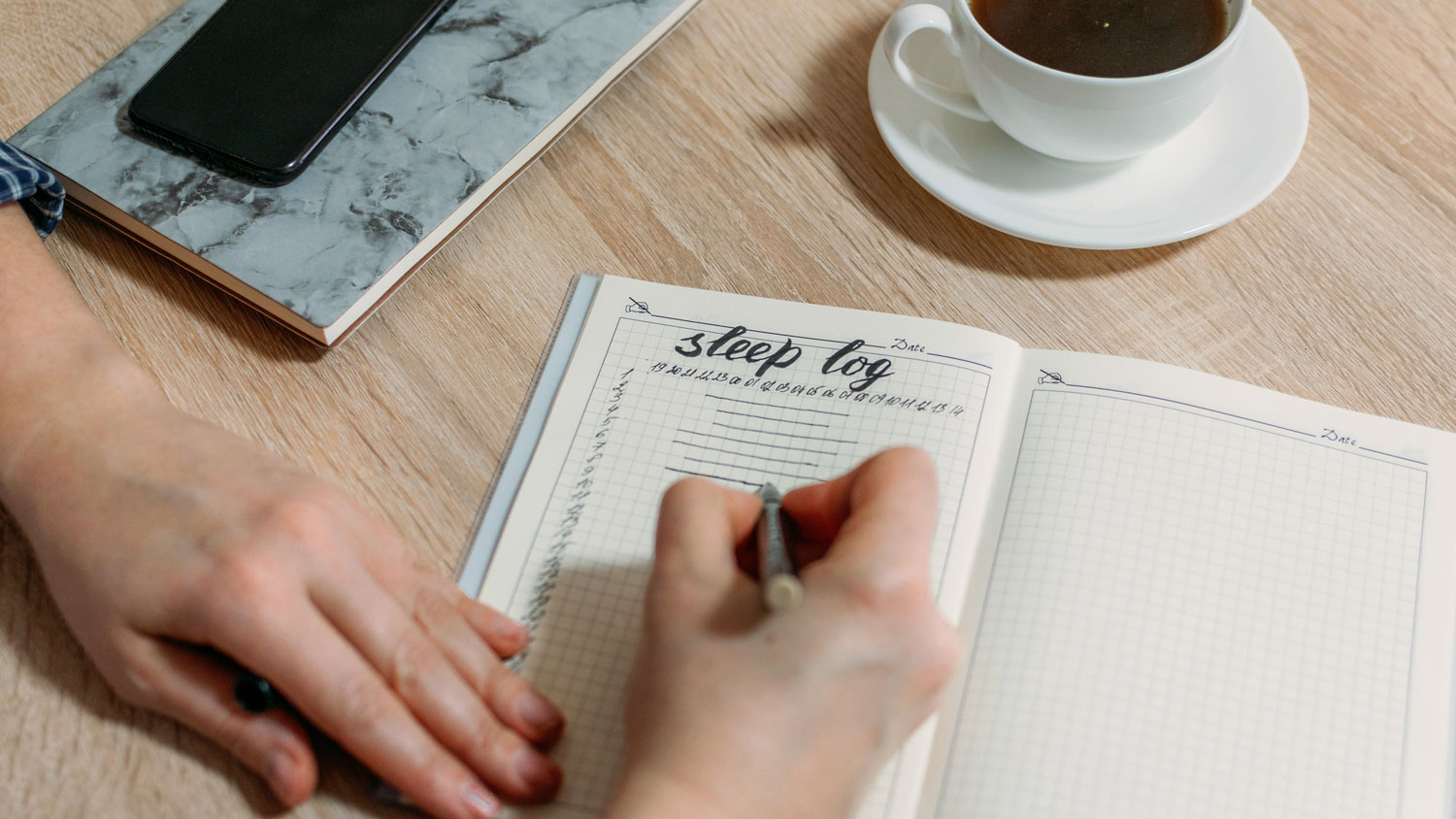
Finally, suggests Lindsay, taking time during the day to write a journal is a great way of helping to brain dump so that your brain isn’t overloaded when you are trying to switch off to go to sleep.
"Instead of your brain doing that thinking and processing during the night or in your dreaming sleep – which can also be disruptive to a good night’s sleep – write down any troubling thoughts, questions and ideas throughout the day in a journal, this will allow you to get those thoughts out of your head and out of the way of a restful night."
Make sure you write this by hand using a pen and paper, however, and not on a laptop or phone as these emit blue light which not only inhibits melatonin production but also may lead to checking social media, emails and so on, which will undo the work of the journal.

Dr. Lindsay Browning is a chartered psychologist, neuroscientist, author and sleep expert who is passionate about helping people to improve their sleep. She's an Associate Fellow of the British Psychological Society, a member of the British Sleep Society and a member of the American Academy of Sleep Medicine, and has published several academic papers and an international self-help book: Navigating Sleeplessness.

A professional writer with over a quarter of a century's experience, Jim has been covering mattress and sleep-related subjects for TechRadar, Tom's Guide and T3 over the past few years, gathering an in-depth knowledge of the workings of the mattress industry along the way. Previously Jim has covered a wide variety of subjects, working widely in the tech and gaming sectors, and more recently covering the design and wellness industries.